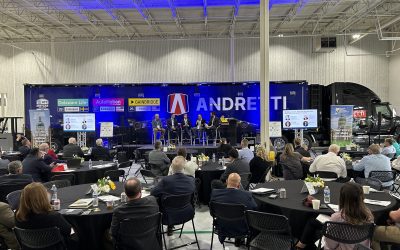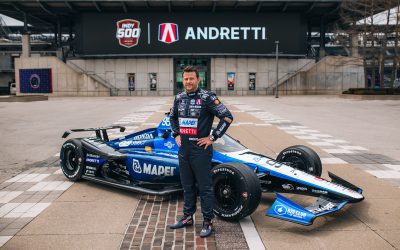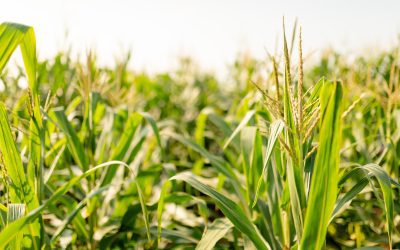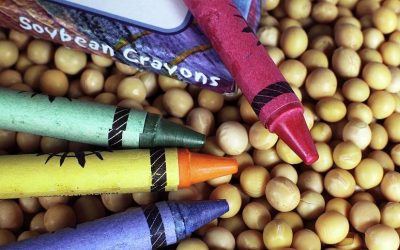By Dave Blower Jr.
The genetic trait that leads someone to become a farmer is firmly embedded in the Ramsey family. A fourth-generation farmer on the land his family has owned since 1864, Phil Ramsey is the property’s current caretaker. He and his wife, Cindy, are proud of that role, and they are pleased to work with the fifth generation. And perhaps, the sixth isn’t too far away.
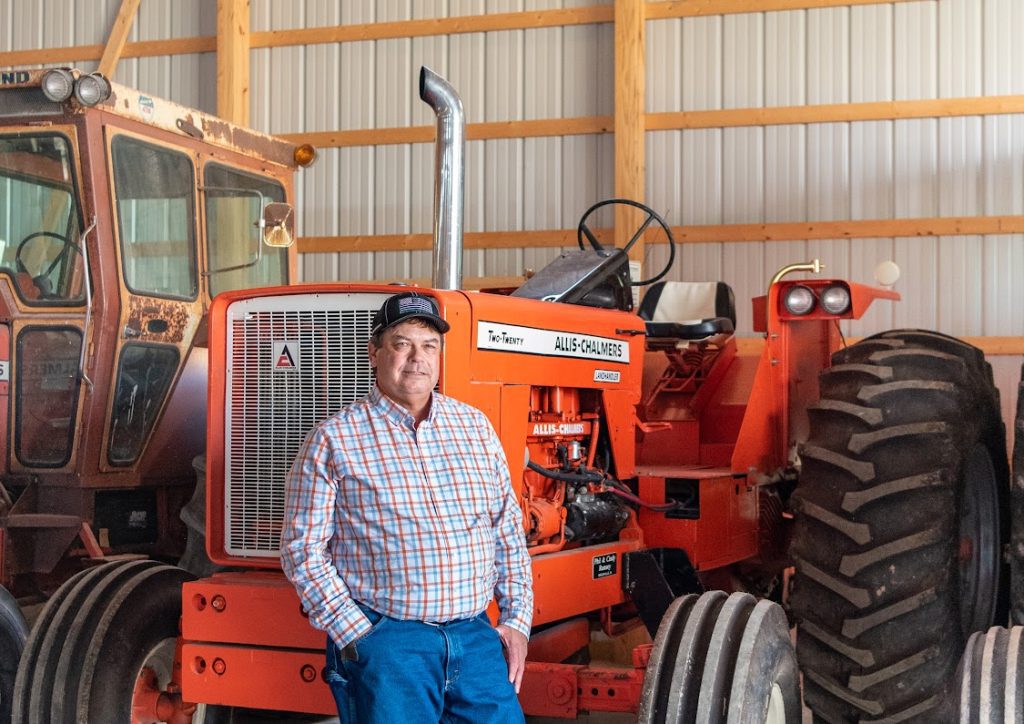
(Dave Blower Jr. photo)
The Ramseys have worked the soil of their Shelby County, Ind., farm for more than 40 years. They have raised a daughter and three sons there. And those children have given the Ramseys 12 granddaughters – yes 12. And on Halloween 2022, a popular grandson was born.
This connection between family and the land was instilled in Ramsey at an early age.
“My grandpa farmed with horses, and my dad farmed with horses and an old Farmall,” Ramsey said. “Later, my dad bought an 8N Ford tractor. He was extremely proud of that tractor. When I first started driving a tractor, I was probably 5 or 6 years old, and it was on that 8N Ford. My dad took me to the field with a rotary hoe – a two-row, rotary hoe – and he said, ‘this field is your job today.’ I didn’t have the choice to get bored or to decide to do something else. I was on that tractor for the day, going back and forth in that field. And I loved it. And that’s where I got the love for farming – right there when I was only 5 or 6 years old.”
Ramsey gets a particular gleam in his eye and a smile creases his face as he recalls the equipment his family has used and the crops they’ve produced through the years.
“I remember the pull-type combine dad had for a while, and then the first self-propelled combine with no cab on it. Dad was so proud of that combine,” he remembered. “That same year, Dad bought an Allis Chalmers 190 XT tractor. That’s what I grew up on; clear up through the 1970s. The combine got a little bigger, but he still had the same 190XT. I can remember being a teenager, sitting on that tractor, which was a 100-horsepower tractor, thinking about dad. He farmed with horses and then a 25- or 30-horsepower tractor. I was thinking, ‘I missed everything. Equipment is as big as it’s ever going to get. I missed all that rapid growth of tractors and combines.’
“But now, I look back at the way farming has progressed in the last 40 years, and it’s just amazing. The technology and the equipment and what we’re able to produce now compared to before – Dad never would’ve believed it. Everything is better: How we understand the plants; how to fertilize them; the chemicals we use to control the weeds and the pests – it’s all better. Then you throw in the technology of GPS, the satellites and now we have record-keeping to every square inch in our fields. Farming has been an amazing ride up to this point.”
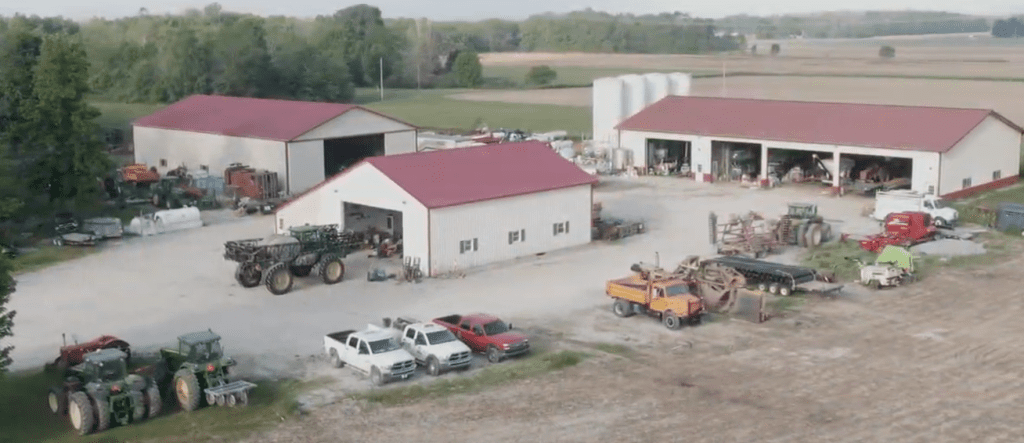
The Phil Ramsey era begins
Phil and Cindy were married the spring after they graduated from high school in the late 1970s. They knew they wanted to farm. They started with 80 acres and 80 sows on a hog farm.
“And I did a terrible job raising pigs,” Ramsey said, smiling.
He said they struggled, but they worked hard. “Cindy was my right-hand man, you might say,” Phil said. “She drove the tractors and did the tillage. She was right out there with me.”
Cindy didn’t originally plan to work on a farm. “I had no desire to be on the farm prior to meeting Phil,” she said. “That wasn’t even on my radar, at all. But I had no problem working side-by-side with him.”
But farm work comes with risks, too.
“A few days before our wedding, I learned a really hard lesson,” Cindy said. “I was helping Phil put nitrogen on, and I put my hand in the wrong spot of a spring hitch. I was helping him hook up to the next tank, and my hand got in there and it got squished. So for our wedding pictures, you don’t see my left side. Phil’s hand is covering my left hand. I was able to put the ring on; it wasn’t terribly swollen. But there was damage here and there. It didn’t look good.”
After years of effort and working off-farm jobs, they just didn’t have enough to make a farm business work on their own. Then, they found an opportunity to buy a farm on contract and rent in Missouri. Phil talked to his parents about the Missouri farm’s potential. The next morning, Phil’s father decided to retire from farming and offered to rent the farm to his son.
“I was surprised,” Phil admitted. “The previous couple years I thought that something like that might happen because I was basically doing most of the work physical work, anyway. We were surprised with the sudden decision because that wasn’t necessarily how Dad worked. We were excited because now we had something that was more certain. If we went to Missouri, we would not have been as certain that we would have succeeded.”
The Ramseys still had to earn everything on the farm.
“When Dad retired, he didn’t give me anything,” Phil recalled. “I bought his equipment at a full price. What Dad did give us was a golden opportunity to stay here on the farm and to grow our family and our business. And so, it was a very good thing.”
Cindy fondly remembers her in-laws and their kindness. “I had a great mother-in-law and father-in-law,” Cindy said. “I would not have traded them for the world. I took care of them until their last day. They were great people. My mother-in-law taught me many things that I’ll remember for the rest of my life.”
Advocating for the future
Now Phil and Cindy are the patriarchs of the family and happy to work closely with their children. Their oldest child, Julia, works in the medical field. Their oldest son, John, is a paramedic. Although Julia and John do not work on the farm, they live nearby and are involved in family life.
The younger two sons, James and Joey, are partners with Phil and Cindy in the farming operation. James also runs the drainage and excavating business. Joey takes care of the grain facility and fertilizer application. But the family works together. And Phil has been a Beck’s Hybrids seed salesman for many decades. Nevertheless, at the heart of it all is the farm. And it’s Phil’s heart for his own farm, his family and the hundreds of farmers that he knows that drives him to volunteer for pro-ag advocacy work.
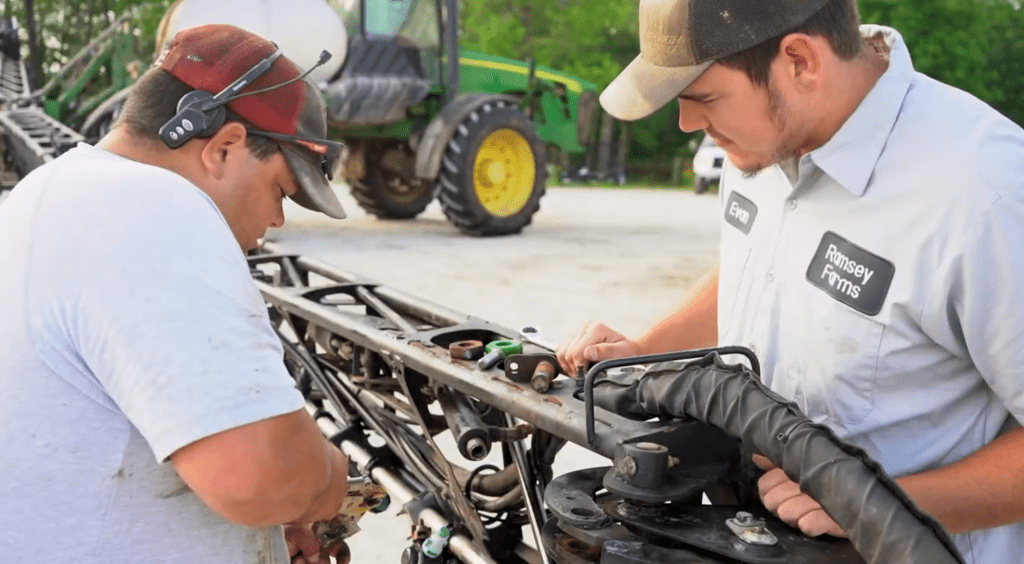
(Dave Blower Jr.)
When Phil was first elected to the Indiana Soybean Alliance (ISA) Board of Directors in 2016, he thought he would spend most of his time working on checkoff projects such as expanding consumer availability for biodiesel, or finding new export markets for U.S. soybeans, or funding Purdue University researchers creating new products with soy ingredients. And he believes Hoosier farmers continue to find value in each of these pursuits.
However, eight years ago, Phil underestimated the value of policy and advocacy work by ISA’s Membership and Policy Committee (M&P) and the American Soybean Association (ASA). “At the time, I thought, ‘I’m only one farmer. What kind of impact can one farmer have on policy?’” he asked.
As it turns out, he said, farmers can have an impact both collectively and individually. Collectively, farmers can affect policy by belonging to large agricultural groups such as ASA or M&P. These groups have resources to connect with state and federal lawmakers and their staffs when policy issues arise.
“We can make a difference,” Phil said. “More voices do make a difference when we go to the Indiana Statehouse or to Washington D.C. We need voices, and we need members.
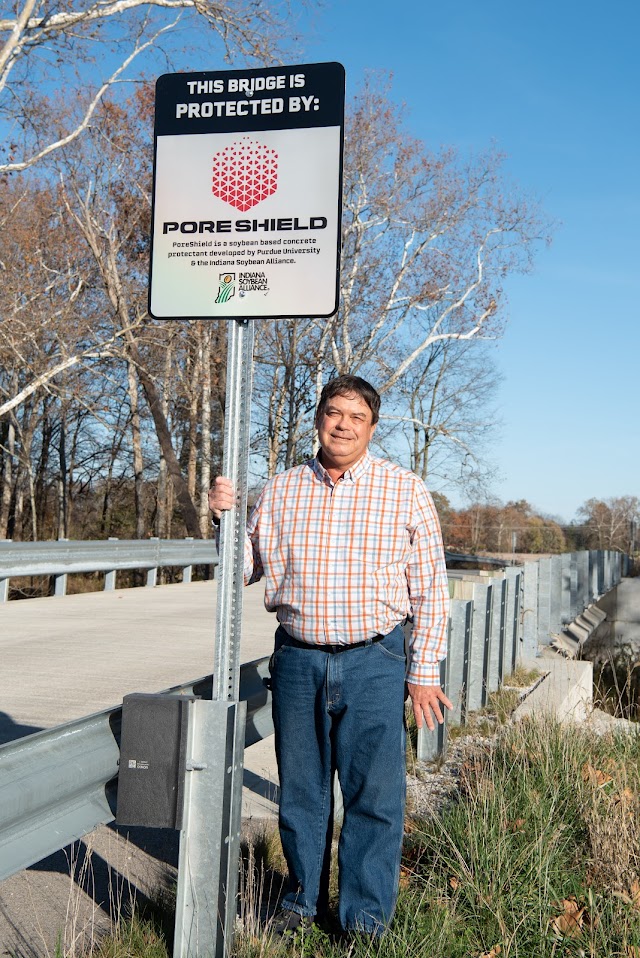
(Amy Kelley photo)
“We need the backing of farmers to become members of the policy organizations because the policies we’re engaged in will affect all of us in agriculture. Becoming a financially supporting member is important no matter how involved you become.”
Individually, Phil said, representatives and senators will remember the names of the farmers they visit. Phil has hosted several lawmakers on his farm including U.S. Sen. Mike Braun (R-Ind.) and U.S. Rep. Greg Pence (R-Dist. 6), among others. He said lawmakers will remember visiting his farm. Additionally, his work with ASA allows him to visit federal lawmakers on Capitol Hill in D.C.
“That’s our opportunity to start talking to (legislators) and becoming friends with them,” Phil explained. “The No. 1 thing you should do is to make a friend of a senator or a representative or their staff. The more they know you, the more you’re able to influence the people making the decisions in D.C. It’s important to keep our presence there and stay in front of our legislators and their staff.”
12 granddaughters, 1 grandson
As Ramsey’s father and grandfather were important to him, he has a sense of pride in his adult children, enjoys working on the farm with his sons, and watching his grandchildren grow.
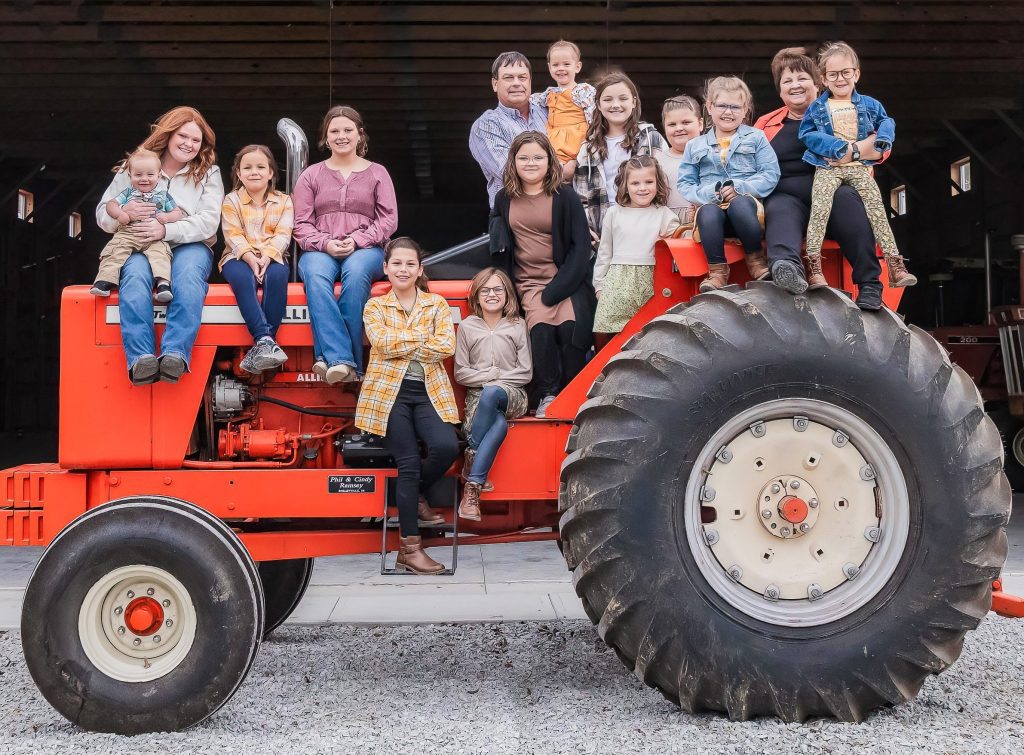
The Ramseys raised a daughter and three sons. Not putting too much thought into the gender of their grandchildren, they expected they would have a mix of granddaughters and grandsons. Their first-born grandchild was a girl. And the second was a girl; and the third was a girl; and the fourth was a girl; and the fifth – well, you get the idea. The Ramseys happily welcomed the birth of 12 consecutive granddaughters – until Halloween 2022 when Baby Phil joined the family. Cindy knew a grandson was coming, due in part to a unique gender reveal party organized by her daughter, Julia.
“We didn’t think we would ever have a grandson,” Cindy admitted. “When they did the gender reveal party, all of the grandkids were supposed to be in white T-shirts. There were squirt guns filled with paint by my daughter, who had all of the inside information. I’m standing by my daughter when the first squirt gun is shot; and I’m like, ‘That’s purple. You know that purple means nothing, right?’ And my daughter said, ‘Just like be patient, Mom.’ The next one was orange. I looked at Julia and said, “Did you fill any of these squirt guns with pink or blue?’ She said, ‘Just be patient, Mom.’ And then the next one was blue. I said, That’s blue!’ She said, ‘Yeah, Mom, it’s blue.’ I said, ‘We don’t have blue. We have pink.’ And I just burst into tears. That’s blue. We’ve never had blue before!”
Phil added, “Yeah, it was a big deal. And it was an equally big deal when they decided to name him after me. That was pretty special.”
Although they’re not pushing the subject, the Ramseys are open to one of the 13 grandkids taking over the family farm someday.
“If they have an interest in it, I’d be happy to see them working on the farm,” Phil said. “They all very much like the farm right now. Two of Joey’s girls seem to be very interested, but they’re very young. You never know what the future holds.”
